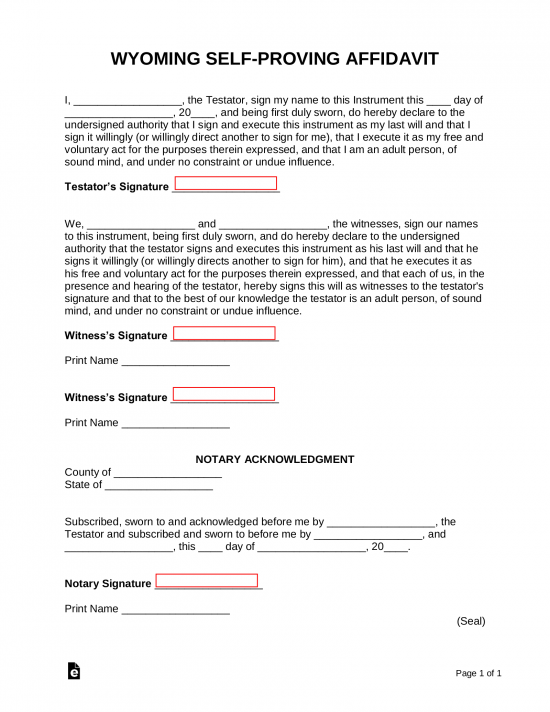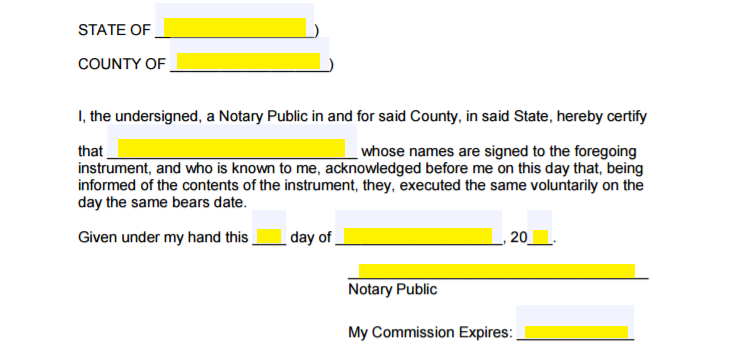
Many people attach the self-proving affidavit to their A self-proving affidavit can be extremely useful since it states that the will should be deemed valid in any state. The protocol for creating a valid, self-proving affidavitĪ "self-proving" affidavit is a document established under oath, typically in the presence of a notary public. In some states, it is perfectly fine for a beneficiary to be a witness. Similarly, many states have different requirements when it comes to the presence of witnesses during the execution of a will. person creating the will) and the witnesses. Location of signaturesĭifferent states will specify the location in the will document of the signatures of the testator (i.e. Here are some examples of potential conflicts between the different states when it comes to last will and testaments. They can provide important insight into potential pitfalls and conflicts in different state laws. This is why it is recommended that you speak to an experienced trust and estateĪttorney if you are planning to relocate to a different state. However, it is important to understand that the requirements for a will to be deemed valid and the rules surrounding the interpretation of a will are governed by state law and differ from state to state. Requirements established under state law, it should be regarded as a valid and executable will in a different state. When a will is properly executed in accordance with the A living will can make your wishes known if you do not want such procedures to be done to you.If you are interested in moving to a new state, take a moment to review the provisions of your will and the laws of the state you are looking to relocate to in order to identify potential pitfalls and problems.Ī common question asked by individuals with a last will and testament is whether or not their will is respected across state lines and can be transported to a different state if they relocate. However, if you do not have one and you become terminally ill and unable to make your own decisions, the medical staff and/or your family may decide to have medical procedures done to you that you do not want. If you revoke your living will, you need to make sure you let your doctor know that you have revoked it.

Make a written document that revokes your living will or.There are several ways to revoke your living will. You can revoke your living will, which means it is no longer valid. What if I change my mind and decide I don’t want a living will? You may also want to discuss your living will and your wishes concerning medical treatment with your family members. You should also keep a copy of the living will with your important papers. You need to make sure your doctors have a copy of the living will so that it can be made a part of your medical records. Your parents, spouse, children, or anyone who would benefit financially from your estate or who are financially responsible for you cannot be your witness for a living will. The witnesses also must sign the document.Ĭan anyone be my witness for a living will? (If you are unable to sign yourself, you can direct someone to sign for you while you watch). Sign in the presence of two witnesses who are competent and at least 18 years old.Voluntarily want to do the living will and.You can have an attorney do one for you, or you can do the document yourself. Again, this document becomes effective only if you are physically or mentally unable to give directions on your own medical care. In a life prolonging procedures declaration, you state that you want to have life prolonging procedures, no matter how extraordinary the procedures are. This is basically the opposite of the living will. You can have a document called the life prolonging procedures declaration.

What if I do want extraordinary life support measures even if I am terminally ill?

The living will does not apply to medical care to provide comfort or stop pain so even if you have a living will you could still receive medical care to help you with pain and to make you more comfortable. For example, a living will would apply to the medical decision to place you on a ventilator or put a tube in you for feeding. The living will does not apply to all health care decisions it applies only to medical procedures/treatments that use artificial means to carry out your body’s vital functions or that prolong the dying process. A doctor must diagnose you with a terminal illness. The living will becomes effective only if you become terminally ill. When does a living will become effective? The document becomes effective only if you are physically or mentally unable to give directions on your own medical care and only if you are terminally ill.

This is a document in which you state your wish to die naturally without the use of extraordinary life support measures if you are terminally ill.


 0 kommentar(er)
0 kommentar(er)
